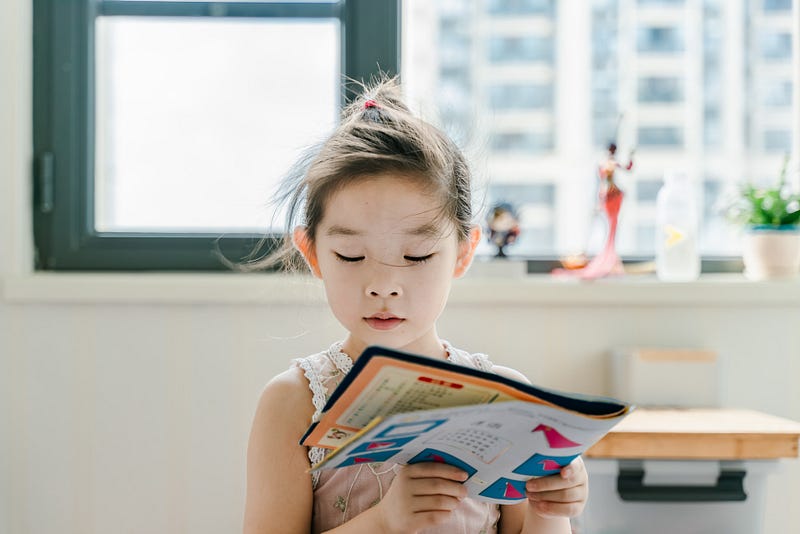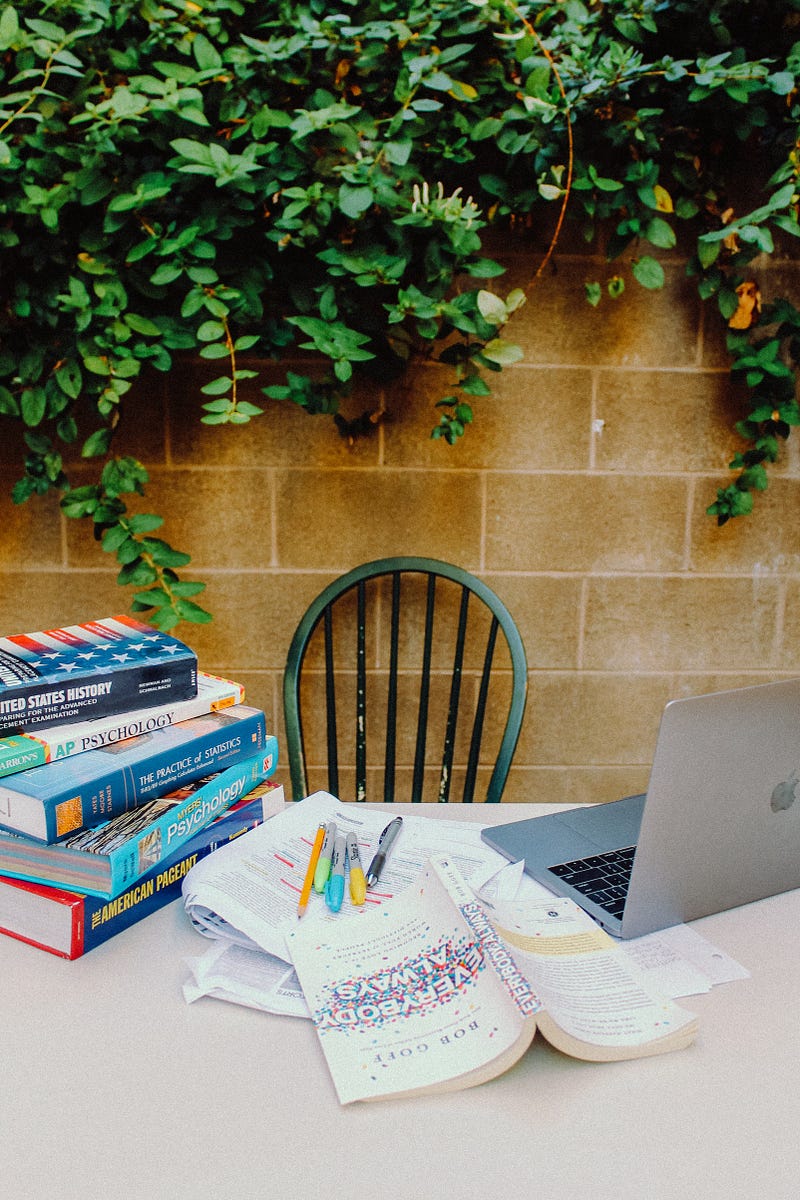Enhancing Your Reading Skills: Practical Strategies to Try
Written on
Chapter 1: The Journey to Better Reading
Put down your smartphone and pick up a book!

I was a painfully slow reader during my college years, which made completing assignments quite challenging. Majoring in English Literature meant I had to tackle hundreds of pages each week, and I often wondered how I managed to graduate at all. While I cherished lectures and discussions, reading texts and crafting essays presented numerous hurdles, including:
- Mental fatigue
- Distracted thoughts
- Blurred vision
You name it, I faced it. For quite some time, I believed I was simply not cut out for higher education. Yet, my passion for reading remained strong. I diligently read every assigned book, captivated by the magic of immersing myself in a world of words. It's akin to being enchanted or delving into another person's psyche, particularly when it comes to fiction and poetry.
Despite my struggles, I would read until my eyes ached and demanded a break. Only a debilitating headache could halt my progress. I experimented with various techniques to enhance my reading and focus. Here are the methods that worked best for me:
- Listening to drone music to drown out distractions
- Finding complete silence in places like libraries
- Taking frequent breaks for stretching, walking, or snacking
- Getting my vision checked!
While the first three strategies were beneficial, nothing improved my reading more than addressing my eyesight. I should have prioritized my vision much earlier!
Becoming Aware of My Vision Issues
It wasn't until I became a teacher after college that I finally sought professional help for my vision. I experienced severe migraines and tension headaches almost weekly. At times, they were so intense that I would return home, take some pain relievers, and collapse on the couch until dinner. I recognized that these migraines stemmed from fatigue, but I never connected them to my eyesight.
My optometrist, a lovely woman at Costco, diagnosed me with astigmatism, indicating that the lenses in my eyes were slightly warped, leading to unclear images, blurred vision, and focus issues.

Finally, I bought my first pair of glasses, and within a week, I noticed a significant difference. My vision was sharper, allowing me to read for longer periods without experiencing fatigue, and my migraines became less frequent and less severe. I often feel empathy for my past self; if only I had sought help sooner while I was still in school... That’s precisely why I’m sharing this article. I hope it serves as a prompt for someone else to get their eyes checked.
Chapter 2: Practical Techniques for Enhanced Reading
The first video, "8 Tips for Becoming a Better Reader," offers valuable insights into reading techniques that can enhance your skills and enjoyment.
Reading for pleasure and research is essential for me as a writer. I typically devote around five hours a day to reading. Although I’m accustomed to it, I won't pretend that it doesn’t require effort. Active reading demands focused concentration. Here are some techniques I employ to improve my information retention:
Section 2.1: Engaging with the Text
Annotate!
Don't hesitate to make notes, underline, and highlight your readings. This tried-and-true method is beneficial for anyone looking to expand their vocabulary or prepare for exams. Plus, carrying sticky notes and a notebook makes you appear intellectual and organized.
Read Aloud
Whether to your pet, partner, or even a plant, verbalizing your reading can be especially beneficial for auditory learners. However, confine this practice to short, tricky passages to maintain its effectiveness. Remember, silent reading is ultimately the more crucial skill.
Time Your Reading
Avoid reading for more than 45 minutes at a stretch. You'll be more productive and focused when you break up your reading into 15–30 minute segments. Just remember to return to your book after your break!
Section 2.2: Preview and Scan
Skim and Scan
Whether it's a tax document or a forwarded article, do a quick review first. Get a feel for the structure and preview what you’re about to read. Trust me, an article becomes much less daunting once you’ve seen the conclusion.
Additionally, scan your reading material for keywords, unusual vocabulary, or critical details that you anticipate the author will discuss. This technique is commonly used by researchers and is something I learned while teaching reading skills to language learners.

Discuss What You Read
After finishing a book or article, share your thoughts with someone. Describe it in your own words and try to recall direct quotes. This practice will shape how you read, helping phrases and sentences stand out more prominently.
Section 2.3: The Importance of Practice
Put down your phone and read a book! It seems straightforward, but improvement comes only through practice. Much like training for a marathon, you cannot expect to tackle extensive novels without committing to a regular reading schedule.
- Start with just 15 minutes a day.
- Aim to complete a chapter each night.
- Set a goal to reach halfway through a book before the weekend.
Setting goals is essential for measuring progress.
Section 2.4: The Value of Reading
I no longer see myself as a slow reader, thanks to my glasses and my determination. I persisted in my reading journey not only because I love fiction but also because it’s integral to my life as an educator and writer.
Become a Better Reader Today
Consider checking your vision; you might discover that your eyesight needs some attention, just like mine did. Establish a reading routine—maybe cozy up on the couch after dinner with a good book. Silence your phone and minimize distractions. You deserve at least 15 minutes to immerse yourself in another world or catch up on long-form journalism.
Avoid Digital Distractions
In a world dominated by audio-visual technology, reading has often taken a backseat to short videos and quick updates. Platforms like TikTok compete for our attention, but consuming colorful content is akin to eating junk food for your brain. Reading requires time and focus, akin to detective work, where you decipher clues from the text.
Although audio-visual media is often more appealing, we shouldn't rely solely on it for entertainment or information. Reading is a historical pillar of civilization, as evidenced by artifacts like the Rosetta Stone, which helped decode Egyptian hieroglyphs. Without readers and writers, language and culture would stagnate.
Appreciate the Gift of Literacy
Reflect on how, until just a century ago, most individuals were illiterate. We should regard reading as a modern privilege—a privilege that remains out of reach for many worldwide. Thus, reading is not just a skill to refine; it symbolizes our civilization and is a practice we must cherish and uphold.
The second video, "How To Become a Better Reader in 12 Minutes," provides quick tips that can help you enhance your reading skills effectively.